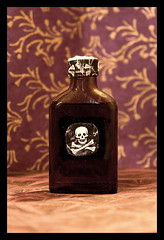Romeo and Juliet Act I. Vocabulary and Shakespearean Drama Terms Flashcards
Terms : Hide Images [1]
| 9413808488 | Adversary | Opponent; enemy |  | 0 |
| 9413808489 | Ambling | Strolling |  | 1 |
| 9413808490 | Augment | To increase |  | 2 |
| 9413808491 | Beseech | To beg |  | 3 |
| 9413808492 | Chastity | Abstinence | 4 | |
| 9413808493 | Flourish | To swing |  | 5 |
| 9413808494 | Kinsman | Relative |  | 6 |
| 9413808495 | Pernicious | Deadly |  | 7 |
| 9413808496 | Portentous | Forewarning; looming |  | 8 |
| 9413808497 | Scathe | To harm |  | 9 |
| 9413808498 | Act | The largest division in a play | 10 | |
| 9413808499 | Aside | When a character speaks directly to the audience and the rest of the characters do not hear |  | 11 |
| 9413808500 | Balcony | Where the wealthy sat in the theater |  | 12 |
| 9413808501 | Bard | A synonym for a poet and a nickname for Shakespeare |  | 13 |
| 9413808502 | Box Office | Where the money was stored |  | 14 |
| 9413808503 | Chorus | A group that narrates the play | 15 | |
| 9413808504 | Dialogue | Where two or more characters converse |  | 16 |
| 9413808505 | Dramatic Irony | When the audience knows something the characters do not |  | 17 |
| 9413808506 | Dynamic Character | A character whose personality and beliefs change |  | 18 |
| 9413808507 | Elizabethan England | When Queen Elizabeth I. ruled England |  | 19 |
| 9413808508 | Flat Character | A character with only one personality trait |  | 20 |
| 9413808509 | Foil | A character that is the opposite of another character |  | 21 |
| 9413808510 | Globe Theater | The theater that Shakespeare partly owned |  | 22 |
| 9413808511 | Groundlings | The people who paid only 1 penny to see the play and where stood near the stage |  | 23 |
| 9413808512 | Iambic Pentameter | A heartbeat like rhythm that Shakespeare used |  | 24 |
| 9413808513 | Monologue | A speech give by one character while other characters are on stage |  | 25 |
| 9413808514 | Prologue | The opening section of the play which acts like an introduction | 26 | |
| 9413808515 | Renaissance | A time of renewal of the arts | 27 | |
| 9413808516 | Round Character | A character with multiple personality traits |  | 28 |
| 9413808517 | Scene | The smallest section of a play/ a division of an act | 29 | |
| 9413808518 | Soliloquy | A speech given by one character when NO ONE else is on stage |  | 30 |
| 9413808519 | Static Character | A character whose personality and beliefs do NOT change |  | 31 |
| 9413808520 | Stratford-upon-Avon | Shakespeare's birthplace |  | 32 |
| 9413808521 | Tragedy | A piece of literature in which the main characters begin is a position of high status and end in a lower status or death |  | 33 |
| 9413808522 | Tragic Flaw | Harmatia; the trait that leads to a character's destruction | 34 | |
| 9413808523 | Tragic Hero | A character destroyed by his/her own tragic flaw |  | 35 |
| 9413808524 | William Shakespeare | An English playwright and poet who lived in Elizabethan England who is often referred to as the greatest writer or all time |  | 36 |
